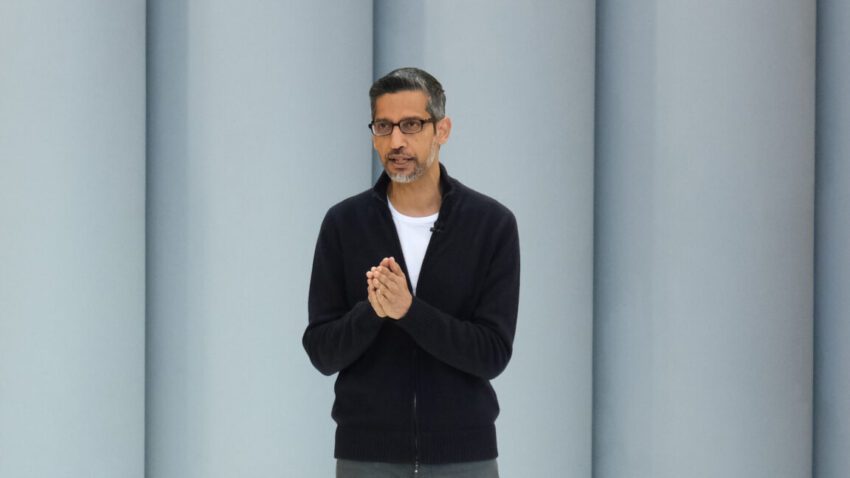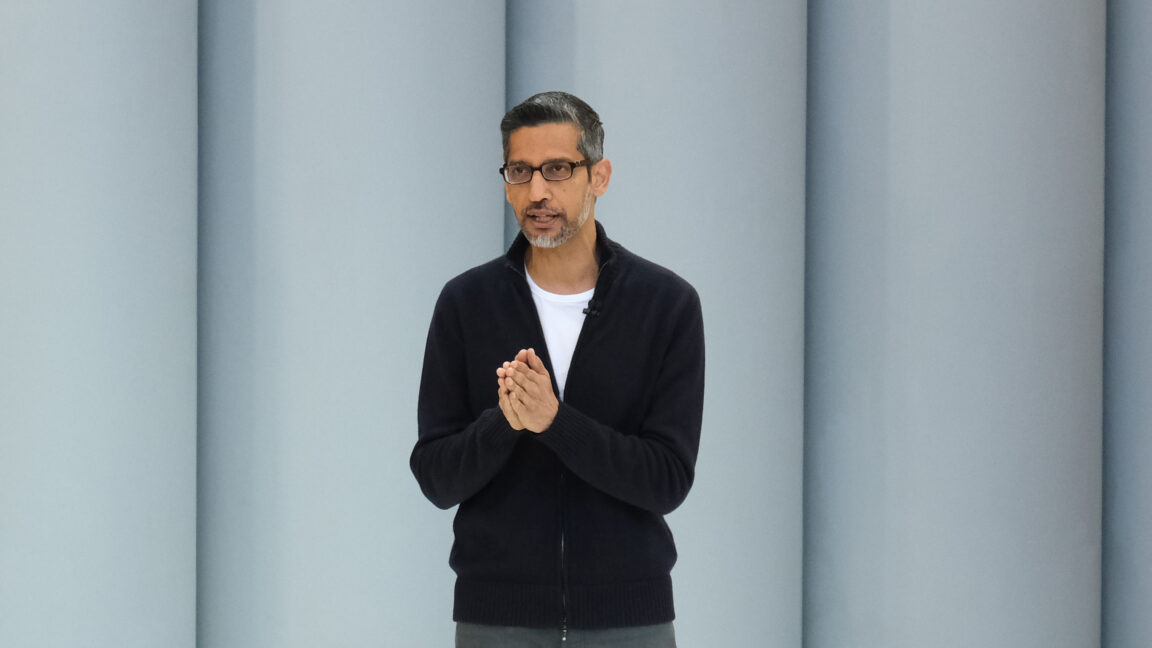
google ceo if an ai bubble pops Alphabet CEO Sundar Pichai has issued a stark warning regarding the potential pitfalls of the current AI investment landscape, suggesting that a bubble could emerge that would impact all players in the market.
google ceo if an ai bubble pops
AI Investment Landscape: A Double-Edged Sword
In a recent interview with the BBC, Pichai articulated his concerns about the “irrationality” permeating the AI market. He emphasized that no company, including Google itself, would be immune to the repercussions of a potential market correction. His remarks come at a time when Alphabet’s stock has seen remarkable growth, doubling in value over a mere seven months, leading to a staggering market capitalization of $3.5 trillion.
The Current State of AI Investments
The surge in AI investments has been nothing short of extraordinary. Venture capitalists and tech giants alike have poured billions into AI startups and projects, driven by the promise of transformative technologies that could reshape industries. However, this rapid influx of capital raises questions about sustainability and long-term viability. Pichai’s comments serve as a cautionary note, urging stakeholders to consider the potential for overvaluation and the risks that come with it.
Historical Context: Lessons from the Internet Boom
Pichai drew parallels between the current AI boom and the late 1990s Internet bubble. During that period, numerous tech companies saw their valuations skyrocket, only to crash dramatically in the early 2000s. This led to a wave of bankruptcies and significant job losses, leaving many investors and employees in dire straits. “We can look back at the Internet right now. There was clearly a lot of excess investment, but none of us would question whether the Internet was profound,” Pichai remarked. This historical analogy underscores the importance of tempering enthusiasm with caution.
The Implications of an AI Bubble
The potential for an AI bubble raises several critical implications for various stakeholders, including investors, companies, and consumers. Understanding these implications is essential for navigating the complexities of the current market.
For Investors
Investors are often drawn to the allure of high returns, especially in a rapidly evolving field like AI. However, Pichai’s warning suggests that those investing in AI may need to reassess their strategies. The risk of a market correction could lead to significant financial losses, particularly for those who enter the market at inflated valuations. Investors should conduct thorough due diligence and consider the long-term viability of AI companies rather than succumbing to the hype.
For Companies
Companies operating in the AI space must also heed Pichai’s advice. The pressure to innovate and deliver results can lead to reckless spending and unsustainable business practices. Firms may find themselves overextending their resources in a bid to keep pace with competitors, ultimately jeopardizing their financial health. Pichai’s acknowledgment of the irrational elements in the current investment climate serves as a reminder for companies to adopt a more measured approach to growth.
For Consumers
Consumers stand to benefit from advancements in AI technology, but they may also face challenges if the market experiences a downturn. A collapse in AI valuations could lead to reduced investment in research and development, stalling innovation and limiting the availability of cutting-edge products and services. Furthermore, job losses in the tech sector could have broader economic implications, affecting consumer spending and overall market stability.
The Future of AI: Balancing Innovation and Caution
As the AI landscape continues to evolve, the challenge will be finding a balance between fostering innovation and exercising caution. Pichai’s insights highlight the need for a more thoughtful approach to investment in AI technologies. While the potential for transformative advancements is immense, the industry must remain vigilant against the pitfalls of overexuberance.
Regulatory Considerations
In light of the rapid growth in AI investments, regulatory bodies may also need to step in to ensure market stability. Governments and regulatory agencies could consider implementing measures to promote transparency and accountability in AI investments. This could include stricter guidelines for funding and valuation assessments, as well as increased scrutiny of AI startups to ensure they are operating within sustainable business models.
Ethical Implications
Beyond financial considerations, the ethical implications of AI development cannot be overlooked. As companies race to develop AI technologies, issues such as data privacy, algorithmic bias, and the potential for job displacement must be addressed. Pichai’s comments serve as a reminder that the pursuit of innovation should not come at the expense of ethical considerations. Stakeholders must engage in meaningful dialogue about the responsible development and deployment of AI technologies.
Stakeholder Reactions
Pichai’s warnings have elicited a range of reactions from various stakeholders in the tech industry. Investors, analysts, and tech leaders have expressed a mix of concern and optimism regarding the future of AI investments.
Investor Sentiment
Some investors have taken Pichai’s comments to heart, reevaluating their portfolios and considering a more cautious approach to AI investments. Others, however, remain optimistic about the long-term potential of AI technologies, believing that the current market dynamics will ultimately lead to significant advancements and returns. This divide reflects the broader uncertainty surrounding the AI market and the varying perspectives on its future trajectory.
Industry Leaders
Industry leaders have also weighed in on Pichai’s remarks. Some have echoed his concerns about the potential for an AI bubble, advocating for a more measured approach to investment. Others argue that the transformative potential of AI justifies the current level of investment, asserting that the technology will ultimately prove its worth. This ongoing debate underscores the complexities of the AI landscape and the differing viewpoints among key stakeholders.
Conclusion: Navigating the AI Investment Landscape
Sundar Pichai’s warning about the irrationality in the AI investment market serves as a crucial reminder for all stakeholders involved. As the industry continues to evolve, it is imperative to strike a balance between fostering innovation and exercising caution. By learning from past mistakes and remaining vigilant against the risks of overvaluation, investors, companies, and consumers can navigate the complexities of the AI landscape more effectively.
Ultimately, the future of AI holds immense promise, but it also requires a commitment to responsible investment practices, ethical considerations, and a focus on long-term sustainability. As the market matures, stakeholders must work together to ensure that the benefits of AI are realized while minimizing the potential for adverse consequences.
Source: Original report
Was this helpful?
Last Modified: November 19, 2025 at 9:35 am
0 views















